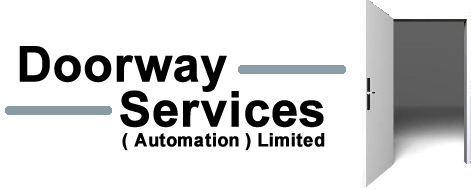At a Glance
Faulty sliding doors can lead to higher energy bills, increased insurance premiums, security vulnerabilities, and reputational damage for commercial properties. Most issues stem from worn parts or poor maintenance. It’s far more cost-effective to make proactive inspections and timely repairs rather than emergency fixes, protecting both your building’s efficiency and professional image.
Are Sliding Doors Leading To Operational Drain?
Sliding doors not closing properly might not be at the top of your list of priorities. However, this seemingly unimportant problem might just be costing your business thousands of pounds in overhead charges.
Common sliding door problems include noisy opening and closing, difficulty sliding, and rattling at the bottom. Sliding glass door issues are usually caused by worn-out rollers, dirt accumulation in the mechanism, obstructed tracks, misalignment, and weatherstripping issues.
While most sliding door problems can be fixed with routine maintenance, ignoring them can significantly affect your business in the long run. In this article, we’re going to see exactly how faulty sliding doors may be costing you more than you think and how you can fix them.
1. Higher Energy Bills
An automatic or manual sliding door that doesn’t close properly can send energy bills soaring. Even a tiny gap will lead to a constant draught, and your heating and cooling systems will need to work harder to maintain optimal indoor temperature.
During winter, you’ll have to use more heating than necessary if your building has sliding glass door issues. This will increase your energy bills, as your systems will need to work harder to warm up the building.
Another one of the most common sliding door problems is damaged weatherstripping. This will allow dust, rain, or snow to easily enter your premises. Constant exposure to moisture may also lead to serious problems like mould growth, requiring expensive maintenance and repairs.
2. Increased Insurance Premium
An older sliding door might have faulty or simple locking mechanisms, which can be easily broken into. If your building insurance adjuster discovers this issue during an inspection, they may increase your insurance premium.
Public liability insurance and commercial property insurance help commercial building owners protect themselves from compensation payouts and legal expenses if a guest or staff member is injured on the property. If the number of claims increases, so will your premiums.
When it rains a faulty sliding door can let in water, making the floor slippery and more likely to cause accidents. Or, it might have weatherstripping that’s sticking out, which can also be hazardous to people using your building.
For automatic sliding doors, if the sensor isn’t working properly, accidents may occur. Insurance companies assess risk factors, and sliding door problems are seen as a security weakness.
Insurance payout for security concerns like break-ins usually has a clause stating that external doors and windows must be properly secured, and the discovery of a faulty door may lead them to reject the claim. If a previous claim mentions accidental damage or break-in due to a faulty door, your premium may increase.
All this can be avoided by undertaking professional, proactive sliding door maintenance.
3. Security Risks
As offices and commercial premises stay closed for holidays or overnight, sliding doors not closing properly can leave your office vulnerable to break-ins and vandalism. Sliding door problems, like weakened glass or misalignment, make it easy for burglars to “jimmy the lock” or shatter the glass.
Even with guards and CCTV cameras, your first line of defence is a sturdy door. Make sure you’re undertaking regular inspections, cleaning and lubricating the rails, and calling in professionals for maintenance and repairs.
4. Reputational Damage
All of the points discussed above, like security risks or safety concerns, can contribute to reputational damage and can directly impact your profits.
If a client or employee gets hurt by a malfunctioning sliding door, it may reduce walk-ins and impact the overall business. Guests and employees like working with brands that they can trust, and safety and security concerns can be a major concern.
Public perception plays a big role in driving sales and customer loyalty. While you can spend hundreds of pounds on marketing, missing regular door maintenance can negatively impact your customers’ experience.
5. Expensive Reactive Repairs
Proactive maintenance is more affordable than reactive repairs. Most sliding glass door issues can be prevented with some lubrication, by changing the weatherstripping, or by checking the alignment.
During reactive repairs, you may need to replace significant door parts, especially if the door continues to be in use despite the problems. The area may need to be closed off for an extended period, leading to needless downtime and service disruptions. As a result, it’s best to proactively maintain your sliding doors with the help of a professional door repair specialist like Doorway Services.
Contact Doorway Services for Proactive Commercial Door Maintenance and Repair
Wondering how to fix a sliding door that won’t slide? At Doorway Services, our experts can conduct a thorough inspection, find the issue, and suggest the right solution in no time.
With years of experience helping commercial building managers and business owners resolve automatic and manual sliding door problems, we are dedicated to offering you nothing but the best. Connect with us today to learn more about our services.


Recent Comments